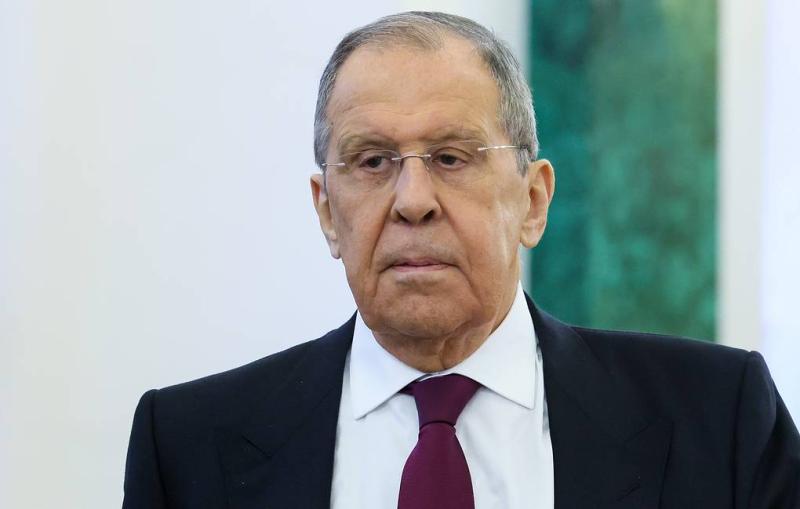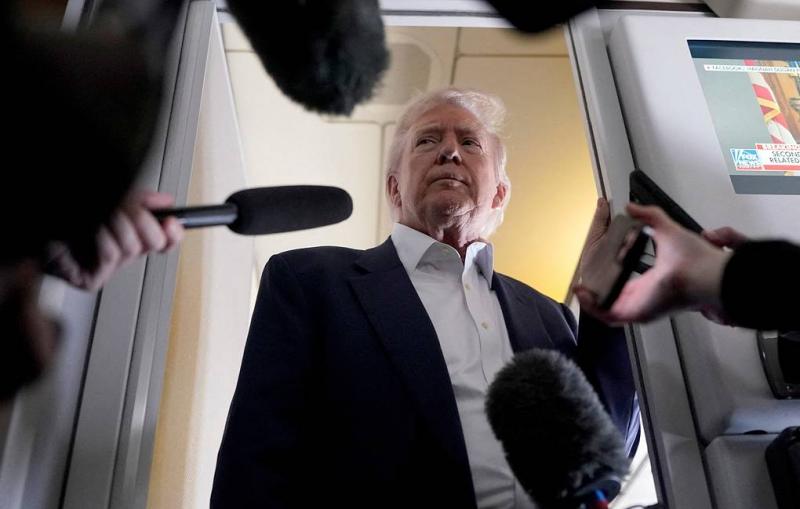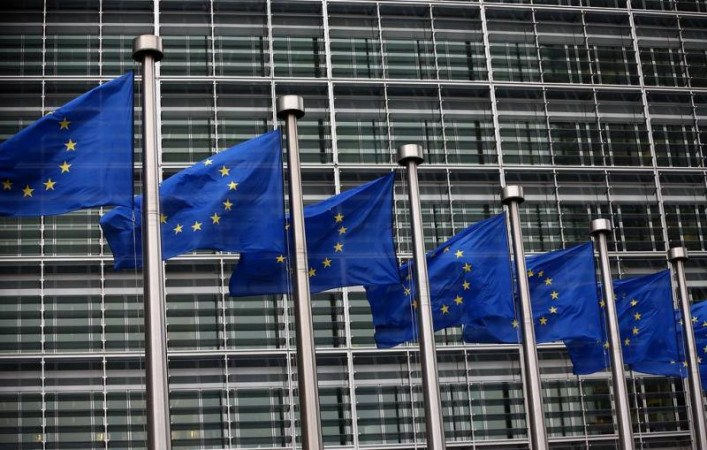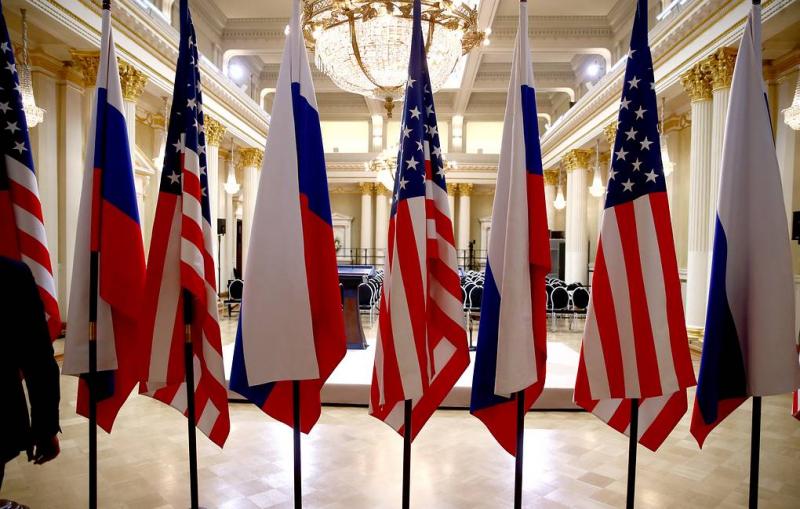Moscow and Washington will engage in discussions on bilateral relations in Saudi Arabia; French President Emmanuel Macron calls for an "emergency" European Union summit in Paris; and analysts anticipate a significant resurgence of foreign companies in Russia. These stories topped Tuesday’s newspaper headlines across Russia, according to TASS news agency.
Izvestia: What will be discussed at first meeting of Russia, US delegations
The first official negotiations between Moscow and Washington since 2021 will be held on February 18 in Saudi Arabia, where the parties are expected to discuss the renewal of the full range of bilateral relations, as well as the prospects for resolving the Ukrainian conflict. At the same time, any territorial concessions to Kiev are out of the question, Russian Foreign Minister Sergey Lavrov, who heads the Russian delegation, said. It is possible that Vladimir Putin and Donald Trump will also meet in Saudi Arabia in the coming days. At the same time, Vladimir Zelensky has already stated that he does not recognize the results of the negotiations, Izvestia writes.
The Russian delegation at the talks in Saudi Arabia will be represented by Foreign Minister Sergey Lavrov, presidential aide Yuri Ushakov, and Head of the Russian Direct Investment Fund (RDIF) Kirill Dmitriev. The US will be represented by Secretary of State Marco Rubio, National Security Advisor Mike Waltz, and Trump’s special envoy to the Middle East Steve Witkoff. According to some media reports, Riyadh is acting not only as a negotiating platform but also as a facilitator.
At the talks, the delegations will mainly discuss reviving the full range of bilateral relations, Russian presidential spokesman Dmitry Peskov said. The Ukrainian conflict may also be on the agenda.
"More important issues will be discussed during the talks - the future of bilateral relations between the two powers, the security architecture of the Eurasian continent and the rest of the world. This is rather a deviation from the status quo that has developed over the past two centuries. I believe that the statement by US Secretary of State Rubio that the moment of unipolarity is already over and that the world must move towards multipolarity means accepting this new reality," the founder of Krainer Analytics, European analyst Alex Krainer told Izvestia.
"The biggest stumbling block is not joining the alliance or even giving new territories to Russia, but providing Ukraine with security guarantees acceptable to Russia. Zelensky calls for the introduction of a NATO peacekeeping force of 200,000 troops. Putin will never agree to this," the Director of the Institute for Nuclear Studies at the American University in Washington and professor of history Peter Kuznick told Izvestia.
The following scenarios are being considered in the media and the expert community: the deployment of a small peacekeeping force of 7,500 people, formed with the consent of both Moscow and Kiev; sanctions against the side that resumes hostilities; Ukraine’s non-accession to NATO, but with the prospect of EU membership, Kiev’s consent to the introduction of a ban on long-range missiles, a ceasefire along the contact line with a subsequent peaceful resolution of territorial disputes.
Vedomosti: Europeans vie for influence in Ukrainian conflict resolution
On the evening of February 17, ahead of the Russian-American negotiations in Saudi Arabia on Ukraine, an "emergency" summit of the European Union (EU), initiated by French President Emmanuel Macron, kicked off in Paris. Its objective is to formulate a European stance on resolving the conflict. In addition to Macron, the heads of government of Germany, the United Kingdom, Italy, Poland, Spain, the Netherlands, and Denmark, along with the President of the European Council Antonio Costa, the President of the European Commission Ursula von der Leyen, and NATO Secretary General Mark Rutte assembled at the Elysee Palace, Vedomosti writes.
The first statements from the summit partcipants in Paris coincided with a report by the Washington Post, which revealed that the latest proposal for a "peacekeeping contingent" of Europeans in Ukraine envisions up to 30,000 soldiers. However, only UK Prime Minister Keir Starmer has expressed willingness to deploy forces to Ukraine. He is set to meet with Trump next week.
At present, the EU does not possess the resources for a military mission in Ukraine, noted senior researcher at the Institute of International Studies at MGIMO University Yegor Sergeev. However, given the current geopolitical landscape, the significance of such measures should not be dismissed, as the European leadership is increasingly influenced by the notion of the EU’s "geopolitical awakening," the analyst added.
The summit in Paris is crucial for the EU: in the eyes of its citizens, it appears detached from efforts to address the Ukrainian conflict, Sergeev argued. The meeting aims to demonstrate that Brussels is dissatisfied with this perception, the expert continued. While the event may have tangible goals in shaping coordinated actions, its overall impact remains limited, he suggested.
A failure to support Ukraine would undermine the EU’s strategic coherence and could be perceived as a display of weakness. "The EU has invested too much to simply discard Ukraine as an asset," the expert maintained.
Following the outcome of the Munich conference, Europeans and their detractors in the United States must recognize that their security rests on their own initiatives, stressed leading expert at the Center for Comprehensive European Studies and International Relations at HSE University Yulia Semke. "Europe cannot choose whether to support Ukraine or not. The only question is to what degree," she emphasized.
Nezavisimaya Gazeta: Kiev continues to sidestep elections
The leader of Ukraine’s pro-presidential parliamentary faction Servant of the People, David Arakhamia, once again stated that elections in Ukraine can be held only six months after the lifting of martial law. Former President of Ukraine Petro Poroshenko (on the list of terrorists and extremists in Russia) previously mentioned Kiev’s plans to hold new elections on October 26. At the same time, the team of Vladimir Zelensky, who continues to see declining public support, may propose amendments to the constitution that would enable the postponement of presidential elections to the Verkhovna Rada, experts told Nezavisimaya Gazeta.
Meanwhile, Former Verkhovna Rada deputy Vladimir Oleynik told the newspaper that, according to Ukrainian law, elections must be held after the lifting of martial law. If there are valid grounds, the Central Election Commission can schedule parliamentary elections in 90 days, and the parliament has the right to set new presidential elections in 100 days.
"But, as we have learned, the stipulated six-month period may be needed to introduce changes to the country’s constitution," the expert pointed out. "It would take 2-3 months to approve amendments to the Basic Law, plus another 90 or 100 days, as required for the announcement of new elections. The presidential team understands that with Zelensky’s current plummeting ratings, there is no chance of winning the popular vote. Therefore, they may heed the recommendations of their European allies and shift the presidential election to the parliament. This option would allow Zelensky to secure his position and retain some political leverage," the expert suggested.
At the same time, Zelensky is keen on holding a parliamentary campaign first, which would create a more favorable situation for the current Kiev leadership, the newspaper writes. However, Kiev’s Western partners may prefer another scenario with a possible political resurgence of Petro Poroshenko, who was unexpectedly welcomed by NATO Secretary General Mark Rutte at a recent international event. The ex-president of Ukraine, despite his own low ratings, could form an alliance with the former commander-in-chief of the Armed Forces of Ukraine, and now ambassador in London, Valeriy Zaluzhny.
The future elections could, in theory, still be held at the end of October if a resolution to the conflict with Russia and a ceasefire are actually reached before Easter, which falls on April 20 this year, as speculated by some Western media.
Vedomosti: Analysts cut oil price projection for 2025
The average price of Brent crude oil in 2025 is expected to be $73.5 per barrel, which is a 9% drop compared to 2024, according to a report by consulting firm Kept (formerly KPMG’s Russian division). In November last year, analysts had forecasted the price of oil in 2025 at $76 per barrel. Thus, the projection has been revised downward by 3%. The analysis is based on the consensus estimates of around 60 research firms, institutions, and investment banks. Russian experts consulted by Vedomosti agree with Kept’s findings that oil prices are set to decline this year.
According to the Kept study, in 2025, the valuation of oil will primarily hinge on geopolitical factors, including a reduction in tensions in the Middle East, sanctions policies, trade tariffs, and oil output levels, particularly in non-OPEC+ nations.
The main drivers for the market will be OPEC+ alliance and geopolitical events, said Alexander Potavin, an analyst at Finam, speaking to Vedomosti. In his view, geopolitics will likely exert the most significant influence on oil prices in 2025. The expert highlighted that negotiations between Russia and the United States over resolving the conflict in Ukraine have taken center stage, while developments in the Middle East have become secondary.
The market interprets the willingness of Russia and the United States to engage in dialogue as a bearish signal, since a potential resolution of the conflict could trigger a partial rollback of anti-Russian sanctions and broaden Russian energy exports to the global market, Potavin explained. According to his calculations, the average price of Brent oil in 2025 will hover around $75-77 per barrel.
According to Lyudmila Rokotyanskaya a stock market expert at BCS World of Investments, the primary factor behind the decline in oil prices in 2025 will be increased production in non-OPEC+ nations. This trend, she argues, may lead to market oversaturation. Geopolitical factors add an "element of unpredictability" to the projections. She also pointed out that US President Donald Trump’s trade policies toward China could drive prices lower.
Dmitry Kasatkin, a consultant at Kasatkin Consulting, added that the Middle East turmoil has had a moderate impact on oil prices. In his assessment, the crucial factors shaping prices will be energy demand trends in China and India, as well as the consequences of US trade protectionism. According to his forecast, the price of oil in 2025 will average $75 per barrel.
Sergey Tereshkin, Director of Open Oil Market, shares this outlook. The oil price is unlikely to surpass $75 per barrel due to waning demand in China, stemming from the broader economic slowdown and the accelerating transition to electric and gas-powered transportation, he clarified.
Rossiyskaya Gazeta: Experts foresee large-scale comeback of foreign firms to Russia
Around 350 international firms may return to Russia by the end of this year, according to a report conducted by the Kokoc Group. Despite the fact that a significant exodus of brands occurred in 2022, today the market is witnessing a growing trend towards their reentry, Rossiyskaya Gazeta writes.
In Q1 of 2022, approximately 560 businesses withdrew from Russia or halted investments in their operations in the country. However, 15 brands restarted their activities in Q2 of the same year. By Q4 of 2024, it is expected that 235 firms will have returned to the Russian market. According to Kokoc Group’s projections, as many as 350 firms may make a comeback in 2025.
Pavel Lyulin, Vice President of the Union of Shopping Centers, told the newspaper that numerous brands which previously exited the market are now eager to return and are evaluating their options.
According to him, many companies that exited the Russian market did not liquidate their representative offices and legal entities in Russia. They will be the first to return if circumstances permit. However, this should not be expected to happen earlier than within a year. "Even if a policy shift is made, cross-border obstacles related to financial transactions and logistics must be resolved," he stated to the newspaper.
According to Igor Kachalov, a lecturer at the Institute of Economics and Business Administration of the Russian Presidential Academy of National Economy and Public Administration (RANEPA), it would be fair for Russia to establish prerequisites for brands seeking to re-enter the market. For example, the obligation to repurchase their assets at fair market rates.
The return of brands will have a moderate impact on local Russian manufacturers, said associate professor of the International Business Department at the Plekhanov Russian University of Economics Anastasia Prikladova. There are several reasons for this: the official departure of brands (rebranding with Russian names) and the use of the parallel import mechanism, she pointed out.
TASS is not responsible for the material quoted in these press reviews



